7 Historical Boardgames to play with friends or family
Historical-themed board games have a special feel to it. They not only entertain, but also immerse us in other eras, from ancient civilizations to the Belle Époque, with important moments in mankind's History. Whether exploring lost temples or negotiating amidst Roman politics, these games invite us to relive the past, with strategy, creativity, and a touch of imagination.
In this selection, we've gathered titles that blend different styles and levels of complexity. Some are widely known, others are maybe a little less popular… but they all have one thing in common: they provide unique experiences!
We've also considered the educational aspect: many of these games are great to play with children. Therefore, in each title, we highlight pedagogical elements that help develop skills such as logical reasoning, planning, cooperation, and of course, learning the history and culture of different eras.
Stone Age
- Era: Stone Age
- 2 to 4 players
- Average Time: 60-90min
- Recommended Age: 10+
In Stone Age, you lead a tribe in the early days of civilization. Your goal is to ensure your people's survival by gathering resources such as wood, clay, stone, and gold, as well as developing buildings and expanding your population. Life isn't easy: seasons change, population must be fed, the space to live is limited.
With a balance of die-roll luck and strategic decision-making, the game is a perfect entry to worker placement games. Visually friendly and with simple rules, it provides engaging matches for both newcomers and experienced players.
Game Mechanics
Worker placement, resource gathering and management, deck building.
Pedagogical Tips
- Stimulates strategic planning and decision-making;
- Teaches basic economy, resource gathering, and task management;
- Learn about the first human civilizations - ideal for young children, stimulating an interest in historical themes in a fun way.
Archaeology
- Era: Ancient Egypt
- 2 to 5 players
- Average Time: 20-30min
- Recommended Age: 10+
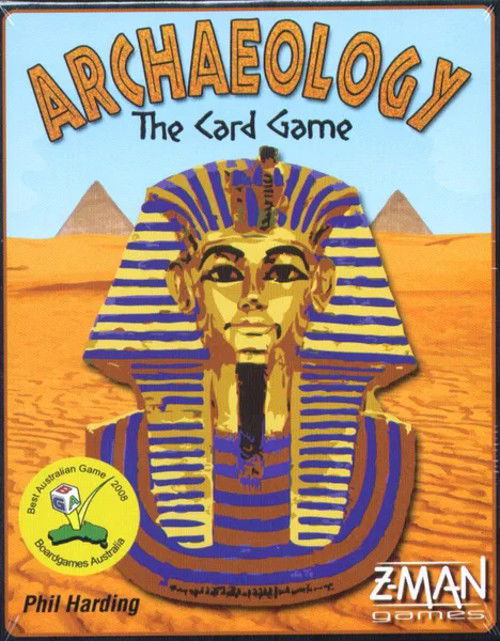
In this simple yet dynamic card game, you are an archaeologist excavating the Egyptian deserts in search of valuable artifacts. Each turn, players draw excavation cards in search of items such as amulets, ceramics, and papyrus, which can be sold or traded on the market. But be careful: sandstorms can appear at any moment and disrupt your plans!
The game is fast-paced, with tense matches and decisions about whether to sell your discoveries or risk holding on to them for greater value. The rules are simple, so it's ideal for party play and to introduce new players to boardgames.
Game Mechanics
Set collection, push-your-luck, card trading.
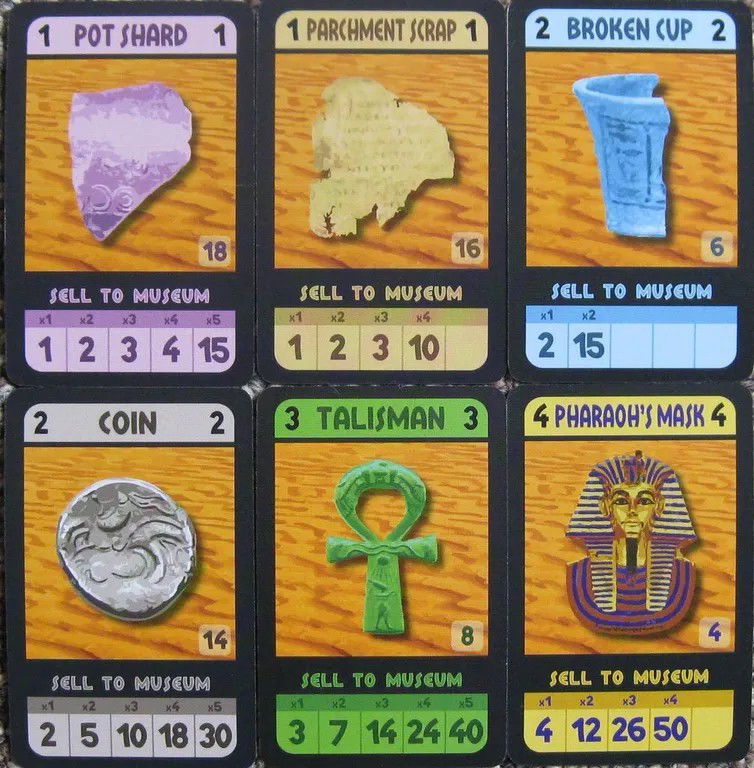
Pedagogical Tips
- Encourages strategic thinking under pressure;
- Teaches concepts of archaeology, commerce, and valuable relics from the past;
- Great to stimulate risk evaluation and management.
Bruxelles 1897
- Era: Belle Époque
- 2 to 4 players
- Average Time: 40-60min
- Recommended Age: 10+
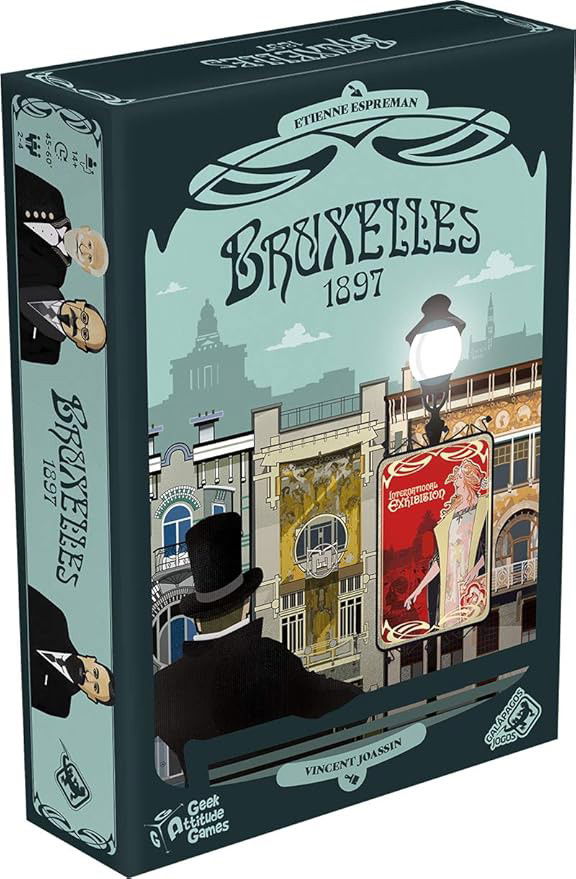
In the midst of the cultural blossoming of the Belle Époque, you take on the role of an artist in Brussels striving for fame and prestige. To achieve this, you must produce and sell works of art, plan Art Nouveau style buildings, and be present within the high society and local politicians. All with elegance and strategy.
This card-based version of the classic Bruxelles 1893 maintains the tactical spirit of the original, but with faster, more accessible gameplay. Every action counts—from managing resources to positioning cards to maximize profits—in an elegant, immersive, and cerebral game.
Game Mechanics
Action-planning with cards, set collection, symbolic control of spaces.
Pedagogical Tips
- Stimulates both creativity and strategic thinking;
- Teaches the historical context, with an artistic focus, in the beginning of the XIX century;
- Shows basic concepts of architecture, art, and political influences.
Café
- Era: XVIII Century Europe - Portugal's Belle Époque
- 1 to 4 players
- Average Time: 20-45min
- Recommended Age: 8+
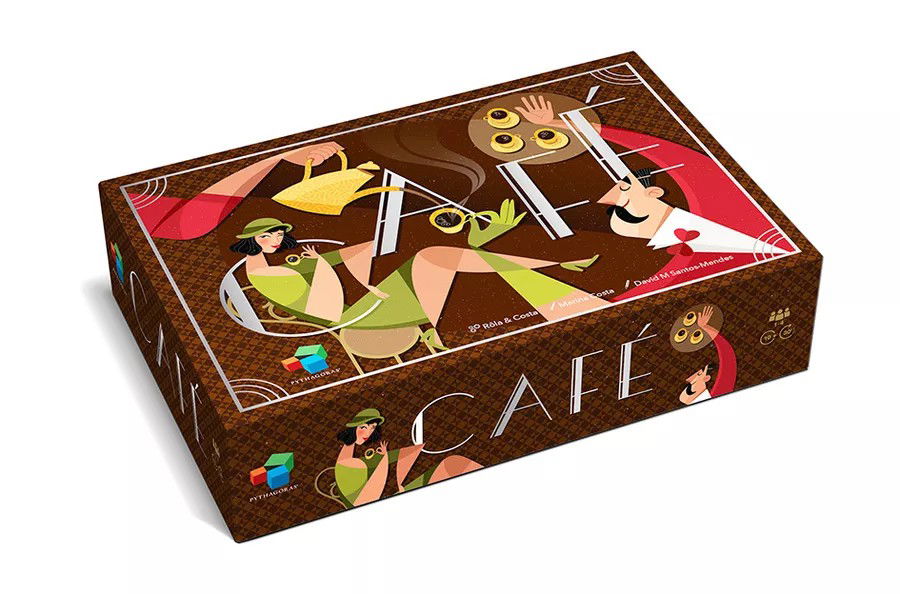
You are in charge of a coffee company that must control the entire production chain: from cultivation to delivery to the most sophisticated coffee shops in Europe. The game is set during the Portuguese Belle Époque, a period marked by the expansion of the coffee trade and the emergence of a vibrant urban culture.
With card-laying mechanics, you plan each action with precision to maximize space usage and production efficiency. Visually charming, Café is a game of logic and strategy with fast and satisfying gameplay. Check out more tips in this article!
Game Mechanics
Production building, action planning, card-laying mechanics.
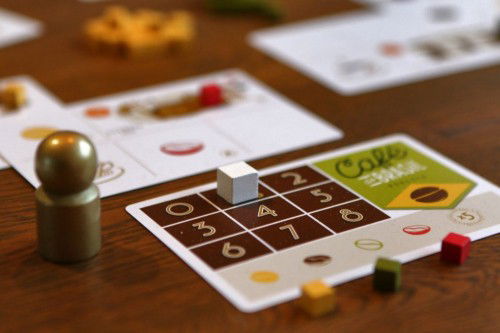
Pedagogical Tips
- Encourages logistics and process optimization;
- Teaches basic economy, colonialism, and global commerce;
- Stimulates strategic thinking and organization.
The Manhattan Project
- Era: Second World War (1940s)
- 2 to 5 players
- Average Time: 90-120min
- Recommended Age: 13+
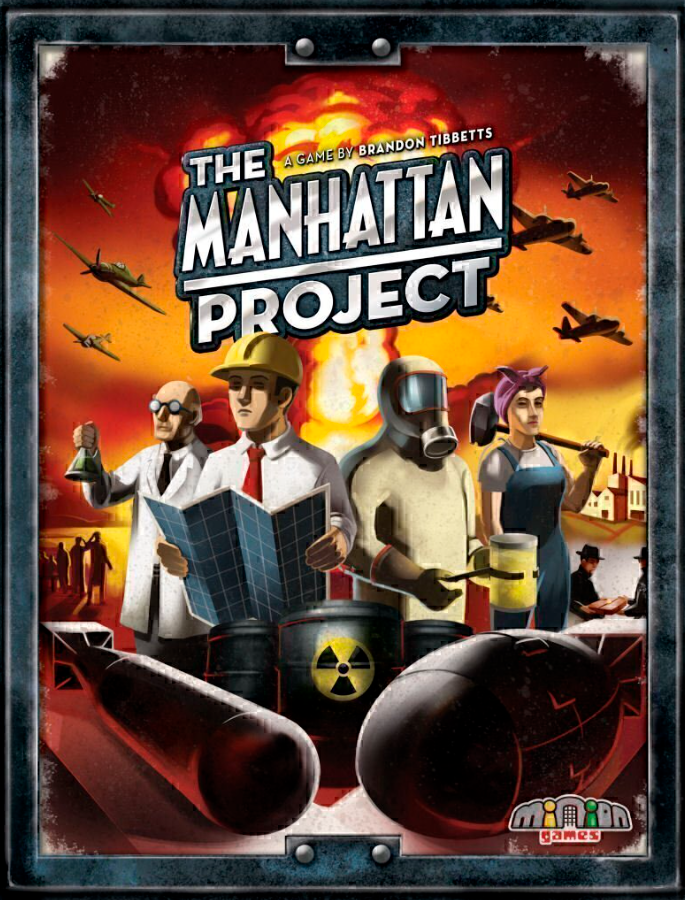
You are the leader of a nation engaged in the atomic race. In The Manhattan Project, the mission is to prepare an infrastructure capable of producing nuclear weapons before your rivals. To achieve this, you allocate workers (scientists, engineers, and laborers), spy on your opponents, and invest in factories, mines, and laboratories.
The game offers an intense strategic experience, with little luck involved and numerous tactical possibilities. Player interactions are frequent, with sabotage, espionage, and indirect attacks, making it ideal for those who enjoy strategic conflict and long-term decisions.
Game Mechanics
Worker placement, structure buildings, espionage.
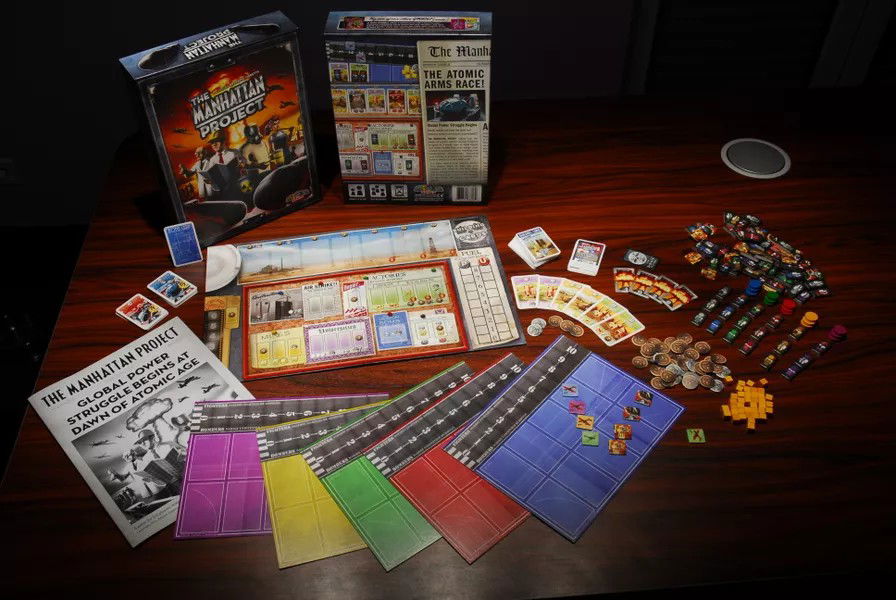
Pedagogical Tips
- Encourages discussion on ethics, from a scientific point of view and geopolitical point of view;
- Stimulates resource management and military planning;
- Teaches about World War II in a strategic perspective.
Senator
- Era: Ancient Rome
- 3 to 5 players
- Average Time: 30-45min
- Recommended Age: 8+
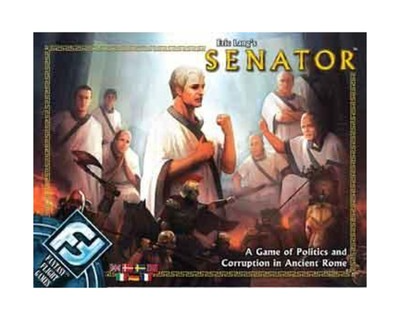
As a Roman senator seeking political power, you face conspiracies, and corruption. The goal is to accumulate enough influence to become emperor; to achieve this, use alliances, betrayals, bribery, and events such as wars, epidemics, and rebellions.
Senator is a fast-paced card game that focuses on player interaction, with auction and negotiation mechanics in a beautifully rendered historical setting. Each game is unpredictable and full of political twists and turns.
Game Mechanics
Auctions, Negotiations, Hand management, Random events
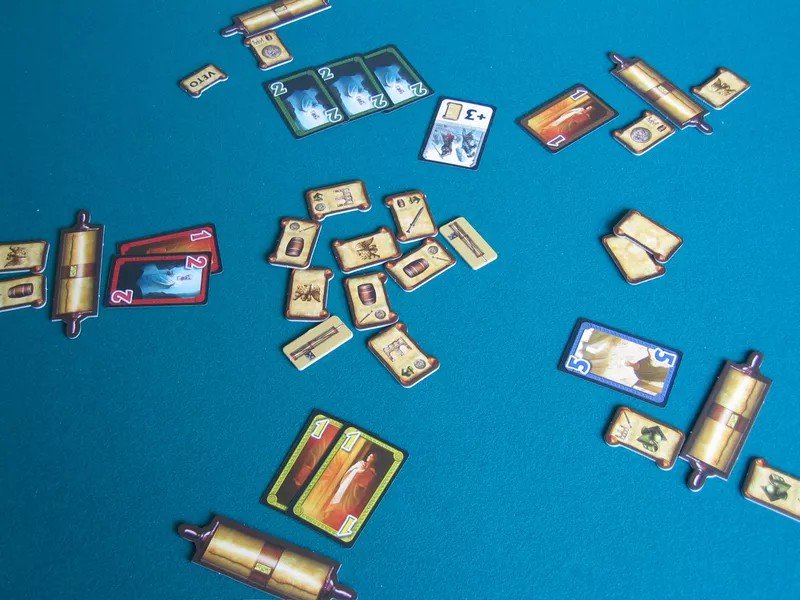
Pedagogical Tips
- Stimulates negotiations and discussions;
- Teaches concepts of politics and citizenship in Ancient Rome;
- Encourages analysis of opponents to anticipate their actions.
Tikal
- Era: Mayan Civilization, in Central America
- 2 to 4 players
- Average Time: 90-120min
- Recommended Age: 10+
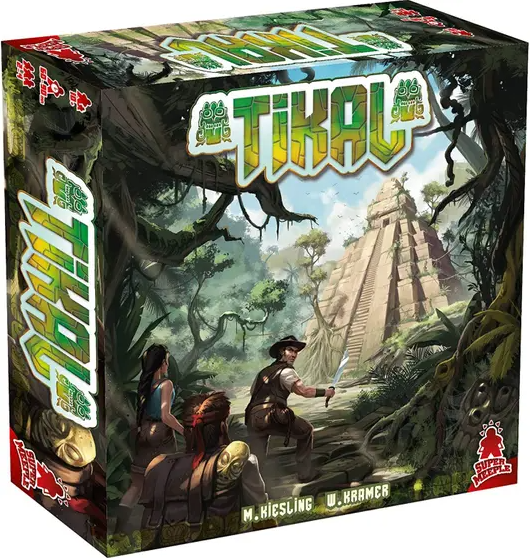
In Tikal, players lead archaeological expeditions into the Mayan jungle, exploring lost temples, excavating ruins, and collecting treasures. The terrain is revealed as the game progresses, making each game unique and full of possibilities.
The game combines area control and spending action points, with vibrant visuals. You'll need to carefully decide how to divide your resources and position your explorers, always paying attention to the score. Tikal is a classic Eurogame, and has many fans due to its strategic depth and engaging theme. Learn more about it in our article!
Game Mechanics
Action points, Tile placement, Area control, Exploration.
Pedagogical Tips
- Encourages spacial planning, task division, organizing priorities;
- Teaches the importance of archaeology and preservation of culture and history;
- Stimulates decision making and dynamic contexts.
Conclusion
Whether leading a tribe in the Stone Age, negotiating artwork in Brussels, or managing a coffee business, every game on this list has something unique. They combine entertainment, well-explored themes, and excellent learning opportunities (for both children and adults).
What did you think of our selection? Did you already know all the games on the list? Do you have a favorite? Let us know in the comments below!








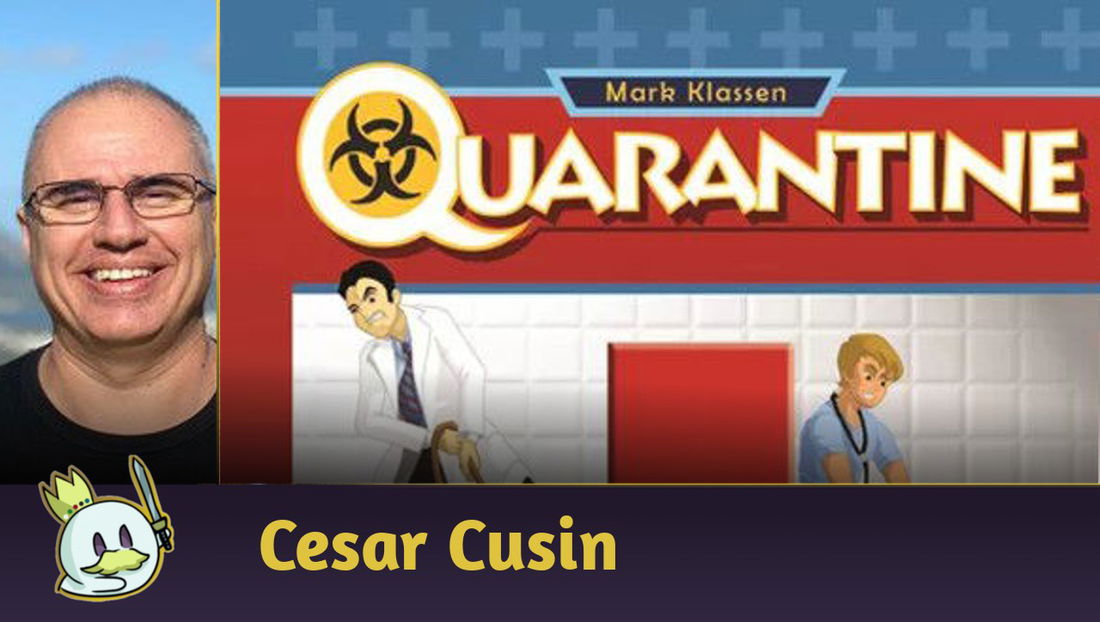



— Kommentare 0
, Reaktionen 1
Sei der erste der kommentiert